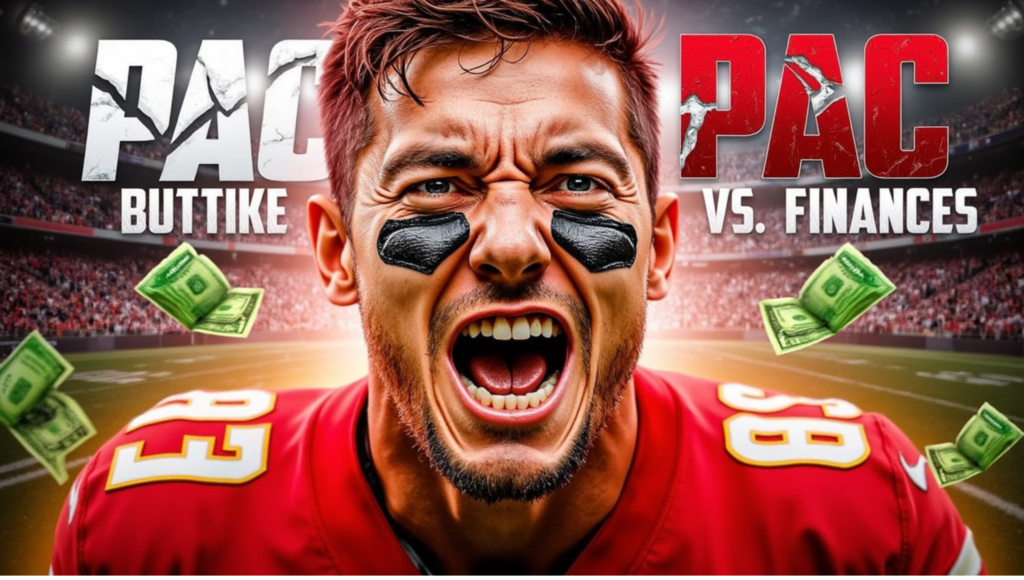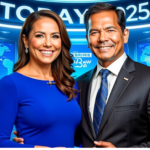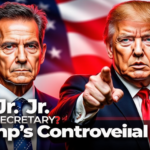Harrison Butker could quite possibly be the most recognizable name of any Kansas City Chiefs kicker in history. He openly professes a stance for integrity, first and foremost: family first, very publicly. That message on and off the field has made him a name, one that has been called many things: criticized and even praised. Recently however, the athlete flip-flopped from becoming a family values advocate to whine about PACs and interference in politics and society as well. Article Analysis The article derailed because it explained how Butker had transitioned from being a strong advocate for a family’s good value to becoming an opponent of the financial state of politics.
Background of Harrison Butker: Strong Family Advocate
Latter, Harrison Butker said it is not merely type of skills but qualities and standards. Coming always in defence of proponents in all interviews on family, faith, and personal integrity, he makes one of the most popular sports personalities in his own right. He proved that professional success precedes the life springing from strength in ties in family relationships.
This campaign spilled over into his private life as well. He had now turned this challenge of his word to be the greatest advocate to spend quality time with loved ones, building relationships that last for more years, and forging strength in community ties. For instance, he is one of those believing family and commitment could well be the price he is willing to pay for it all, especially in such very personal but, at the same time, carrying a message that he felt he needed to pass on to others, especially these times of fast work and media exposure he already saw being used to pull people away from their roots.
But on his last move within the spectrum of political rhetoric, still a political neophyte playing within the game of national political discourse, Harrison Butker had worn over the political muscle that PACs are gaining over America’s electoral field the cloak of the crusade. The registrant bodies of the PACs, however, in the last two years or so, have raised and contributed monies into the political coffers, wresting fantastic control over how U.S. elections are being conducted. These networks of finances enroll many sport persons, film personalities, and celebrities either directly by donating funds or for a cause.
It was that seething anger of Butker towards the PACs, and that role of money in politics was causing much more agony these organizations were causing something that attaches profound value to one’s very being-the real principles of democracy. And here, he declares that he is offended that it even becomes possible that money rather than merit or legitimate interest in people decides the outcome of political and policy matters. This thrust puts Butker face to face with an acute and glaring contradiction to his values of integrity and fairness-the two values that he cherishes more than anything else in his personal and professional life
Recent tongue-lashing by Harrison Butker also earned him a new, derogatory nickname in certain quarters: the “angry rich guy.” That term usually characterizes well-heeled folks who get loud and vocal against the establishment. That would be very far from the public persona he embraced as an athletefather. More credibility in Butker’s rant however is in his claims. But criticism rather is not rant over too much money, but rather gives this hint on how money governs decisions.
So long as one remains the darling of a very public pulpit, Butker’s position on PACs and power of money in politics was extremely popular. Even his critics saw the way he spends his money and the way that he uses his influence, placing himself in a very difficult position to speak out about the weaknesses of those institutions that treated him with so many cuts. For all of his detractors, Butker serves as symbol for conscience against such powers, whether this meant offending parts of his fan base.
PACs and Their Expanding Influence in Democracy
Compare the state of American democracy with how the group role in putting the Butker case has been changing. Ironically enough, this is the very reverse of what initially had been the intent since it was originally established to be the straightforward mechanism whereby people and organizations might pool their resources so as to help finance political campaigns. However, the role of PACs exponentially expanded in the long run with the advent of super PACs groups allowed to raise and spend virtually unlimited dollars on behalf of candidates and causes.
In the meanwhile, even while they may magnify the voice of the ordinary citizen, critics assert that the PACs exist primarily to serve in a highly disproportionate fashion as regards interests articulated by the very wealthy and powerful. This would therefore suggest, as a conclusion, grounds for concern that the effect of PACs flooding the political system with such a deluge of enormous sums of money actually serves to fortify a system wherein corporate and elite donor interests have greater voice than that of regular voters. And in this sense, the political landscape appears increasingly out of touch with the needs and concerns of ordinary people.
Those cautionary words, Butker recalls, clarify how anger has a valid reason for being that way: hijacked by the might of a few interest groups who spend their money or garner financial influence instead of the people whom it was there to represent. It’s a voice for family values, an ear to that louder call for just and far better representation: one that won’t be shaken with financial powers of organizations who made money so well off politics and government.
Conflict: Family Values vs. Financial Power
So what, then, does Butker’s frustration hang on? Caught in contradiction between ideals he professed for the ideal and reality-a world of politics in control of financial acumen on the other hand, Butker always held that family, integrity and fairness were right harmless-by far removed from the influence of “dunder-headed” PACs. It was through this public icon experience that he faced the awesome power of money and power piling contradiction upon contradiction.
More concretely, he has nothing to do with repudiation of the tenets of family-first principles but to understand that such principles are normally overriden by the money machine behind politics in today’s society. His problem isn’t the mechanisms of PACs per se, but this overarching question raised by society: what principles should politics be based on: integrity, fairness and accountability or financial muscle and might?
Conclusion: Call for Change
From fire-breathing crusader to family first and then passionate voiced protest at the very existence of PACs and money in politics, Harrison Butker is but the herald of something within the individual that feels a tug toward the integrity needed once again for instillation into the democratic system. It is, of course, pretty clear in the terms of the issue which money keeps winning in politics, and whose ideas close to many people’s hearts sink slowly.
It’s still too early to know if this moment in opinion may change the trajectory of broader public debate about PACs and political power. However, for Butker, such public defense for his company has already fired up a small matter of discussion on the nexus of wealth and power and democracy. A man who continues talking about being a walking athlete, Harrison Butker now steals headlines to say what he thinks ought to come under the limelight: campaigning for a system that stands for the people above the pockets of the elite.





Pingback: RFK Jr. to Serve as Health Secretary Under Trump Leadership